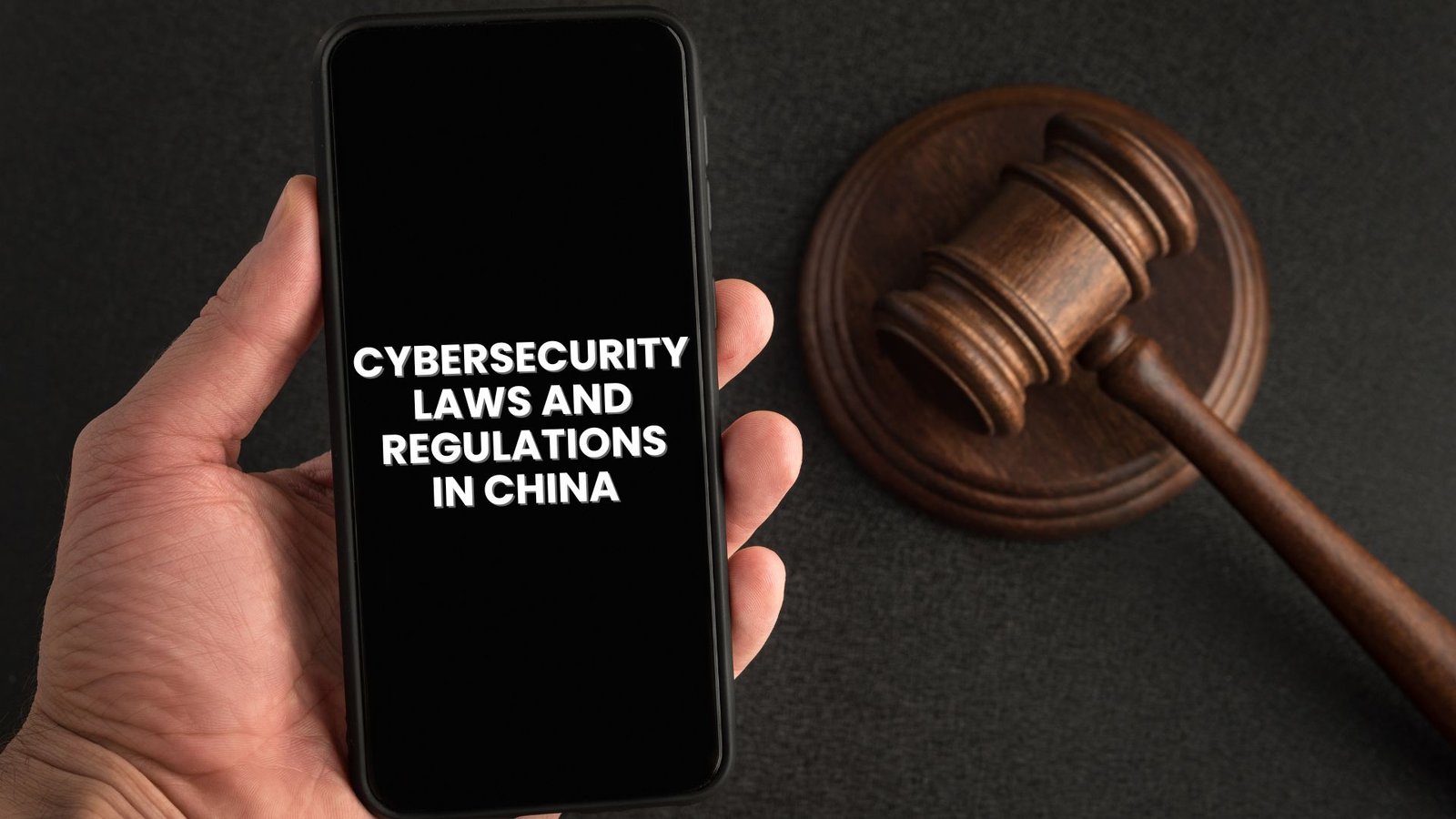On this page you will read detailed information about China’s Cybersecurity Measures Against Hackers.
As cyber threats continue to evolve, nations around the world are bolstering their digital defenses. China, with its vast technological infrastructure and online population, has implemented a range of cybersecurity measures to protect against hackers and other malicious actors. You may be wondering how the world’s most populous country safeguards its digital assets and citizens’ data. This article will explore some of China’s key strategies in combating cyber threats, from stringent regulations and advanced technologies to international cooperation efforts. Understanding these measures provides valuable insights into the global cybersecurity landscape and the lengths to which nations will go to secure their digital frontiers.
Overview of Cyber Threats Facing China
China’s cybersecurity landscape is fraught with complex challenges and evolving threats. As a global economic powerhouse and technological innovator, the nation faces a barrage of cyber risks that threaten its digital infrastructure, national security, and economic interests.
State-Sponsored Attacks
One of the most significant threats to China’s cybersecurity comes from state-sponsored actors. These sophisticated groups, often backed by rival nations, target critical infrastructure, government agencies, and private sector organizations. According to CISA, state-sponsored cyber actors have been known to compromise IT environments of critical infrastructure organizations, particularly in sectors such as communications, energy, and water systems.
Economic Espionage
China’s rapid economic growth and technological advancements have made it a prime target for cyber espionage. Hackers seeking to steal intellectual property, trade secrets, and sensitive business information pose a constant threat to Chinese companies and research institutions. This form of cyber attack not only jeopardizes individual organizations but also has the potential to undermine China’s economic competitiveness on the global stage.
Critical Infrastructure Vulnerabilities
The increasing digitalization of China’s critical infrastructure has created new attack surfaces for cybercriminals. CISA reports that sectors such as aviation, energy, and telecommunications are particularly vulnerable to cyber intrusions. These attacks could potentially disrupt essential services and pose significant risks to national security and public safety.
Emerging Technological Threats
As China continues to lead in areas like 5G, artificial intelligence, and the Internet of Things, it faces new and evolving cyber threats. Adversaries are constantly developing sophisticated techniques to exploit vulnerabilities in these emerging technologies, challenging China’s cybersecurity measures to keep pace with technological advancements.
China’s Comprehensive Cybersecurity Law
Overview and Objectives
In 2017, China implemented its landmark Cybersecurity Law, marking a significant step in the country’s efforts to strengthen its China cybersecurity measures. This comprehensive legislation aims to safeguard China’s cyberspace sovereignty, protect critical information infrastructure, and regulate the collection and use of personal data. According to legal experts, the law is part of a broader strategy to make all networked information crossing Chinese borders transparent to the government while restricting unauthorized access.
Key Provisions and Requirements
The Cybersecurity Law introduces several crucial provisions:
- Data Localization: Critical information infrastructure operators must store personal information and important data within mainland China. Cross-border transfers require security assessments and government approval.
- Network Security: Organizations are required to implement robust cybersecurity measures, including incident response plans, regular risk assessments, and penetration testing.
- Personal Information Protection: The law mandates strict guidelines for collecting, using, and protecting personal data, with severe penalties for non-compliance.
- Government Access: Companies must provide technical support and assistance to government authorities for national security and criminal investigations.
Impact on Businesses and Individuals
The implementation of China’s Cybersecurity Law has far-reaching implications for both domestic and foreign entities operating within the country. Businesses face significant challenges in navigating the complex regulatory landscape, with concerns about data privacy, government access to sensitive information, and potential conflicts with international data protection standards. However, the law also aims to foster trust in China’s digital ecosystem and promote the development of a robust domestic cybersecurity industry.
Government Oversight and Monitoring of the Internet
China’s cybersecurity measures against hackers include extensive government oversight and monitoring of internet activities. The Chinese government has established a comprehensive legal framework to control and censor online content, implementing regulations such as the Cybersecurity Law and the Counter-Terrorism Law. These laws grant authorities broad powers to monitor and regulate internet usage.
Central Control and Enforcement
At the heart of China’s internet control system is the Central Cyberspace Affairs Commission, which determines what content to block or filter. Working in tandem with this body are cyber police units responsible for enforcing censorship through various tactics, including installing surveillance hardware and conducting investigations.
The government employs a multi-faceted approach to maintain its grip on the digital sphere:
- Requiring internet service providers and cafes to maintain detailed records of user activities
- Blocking access to foreign websites and social media platforms
- Cracking down on the use of VPNs and other circumvention tools
Advanced Surveillance Technologies
China has integrated big data and cutting-edge surveillance technologies to monitor and profile internet users. This includes the use of facial recognition and location tracking, particularly in regions like Xinjiang where ethnic minorities face heightened scrutiny.
The government has also developed sophisticated censorship tools like the “Falun Gong Content Examination System,” which can automatically detect and block content based on viewpoint rather than just specific keywords. This level of technological advancement allows for more nuanced and pervasive control over online information flow.
Through these comprehensive measures, the Chinese government aims to maintain a tight grip on the country’s cybersecurity landscape, balancing the need for technological advancement with strict control over digital communications.
In the previous post, we had shared information about How Do Different Countries Address Cyberstalking Charges?, so read that post also.
Restrictions on Virtual Private Networks (VPNs)
In recent years, China’s cybersecurity measures have increasingly targeted Virtual Private Networks (VPNs), a key tool for bypassing internet censorship. The Chinese government has implemented stringent regulations to limit VPN usage, significantly impacting both individuals and businesses operating within the country.
The Great Firewall and VPN Bans
China’s infamous “Great Firewall” has long blocked access to numerous foreign websites and apps. However, the government has intensified its efforts to maintain tight control over online activity by banning unapproved VPNs. This move represents a significant escalation in China’s cybersecurity strategy, aiming to close loopholes that allow users to circumvent state-imposed internet restrictions.
Impact on Tech Companies and Users
The VPN crackdown has forced major tech companies to comply with Chinese regulations. For instance, Apple removed several VPN services from its Chinese App Store, sparking criticism from VPN providers and human rights advocates. This compliance highlights the challenging balance between business interests and principles of free speech in the Chinese market.
Implications for Cybersecurity
While the Chinese government frames these restrictions as cybersecurity measures, they raise concerns about data privacy and security. The Multi-Level Protection Scheme (MLPS 2.0) mandates strict technical controls, potentially exposing sensitive information to government scrutiny. This approach to China cybersecurity not only affects domestic users but also poses risks for international companies operating in or connected to China.
Global Ripple Effects
The impact of China’s VPN restrictions extends beyond its borders. The country’s digital authoritarianism model, propagated through initiatives like the Digital Silk Road program, influences global internet governance. As a result, these cybersecurity measures have far-reaching implications for international data flows and online freedoms worldwide.
The Great Firewall for Content Filtering
China’s cybersecurity measures include the infamous Great Firewall, a sophisticated system designed to regulate and censor internet content within the country’s borders. This massive digital barrier is a cornerstone of China’s approach to online security and information control.
How the Great Firewall Works
The Great Firewall operates by checking internet traffic for keywords or sensitive content, blocking access when detected. It employs over 2 million censors and uses advanced technology to analyze web traffic, effectively creating a separate internet ecosystem behind this digital barrier. This system blocks access to major global platforms like Google, Twitter, and Facebook, leading to the rise of homegrown Chinese tech alternatives.
Impact on China’s Digital Landscape
The Great Firewall has significantly shaped China’s internal internet economy, giving preference to domestic companies. As a result, Chinese users access services like WeChat, Taobao, and Baidu instead of their Western counterparts. This has fostered the growth of Chinese tech giants like Alibaba and Tencent, creating a thriving parallel digital universe.
Cybersecurity Implications
While primarily focused on content control, the Great Firewall also serves as a defensive measure against external cyber threats. However, its emphasis on information security (xinxi anquan) rather than network security (wangluo anquan) has led to some vulnerabilities. The fragmented bureaucracy and lack of coordination among different government agencies have inadvertently fostered an underground internet economy within China.
Evolution and Future Challenges
As cyber threats evolve, so does the Great Firewall. China has developed additional tools like the “Great Cannon,” capable of launching large-scale DDoS attacks. This represents a significant escalation in China’s information control efforts, allowing the government to actively target foreign websites. The ongoing challenge for China’s cybersecurity measures will be balancing innovation and economic growth with strict content control and national security concerns.
Cybersecurity Talent Development and Training
China’s commitment to bolstering its cybersecurity measures is evident in its robust talent development initiatives. The nation has made significant strides in cultivating a skilled workforce capable of defending against sophisticated cyber threats.
Educational Initiatives
China’s cybersecurity talent pipeline is rapidly expanding, with over 200 colleges and universities now offering bachelor’s degrees in cybersecurity. Moreover, the country has launched a government program to certify “World-Class Cybersecurity Schools” (WCCS), with 11 universities currently holding this prestigious designation. These institutions are at the forefront of cybersecurity education, integrating cutting-edge curricula to produce graduates with both cybersecurity and AI/ML skills.
Training Centers and Incubators
The National Cybersecurity Center (NCC) in Wuhan plays a pivotal role in China’s cybersecurity talent development strategy. This sprawling 40 km2 campus, formally known as the National Cybersecurity Talent and Innovation Base, aims to address the country’s shortage of 1.4 million cybersecurity professionals. The NCC’s Talent Cultivation and Testing Center has the capacity to train over 70,000 cybersecurity professionals annually, significantly contributing to closing the talent gap.
Industry-Specific Training
Recognizing the importance of sector-specific expertise, China is also focusing on industry-tailored cybersecurity training. The Ministry of Industry and Information Technology (MIIT) has unveiled plans to conduct 30,000 data security training sessions by 2026, targeting professionals in the industrial sector. This initiative aims to fortify the country’s critical infrastructure against cyber threats and enhance overall China cybersecurity measures.
International Cooperation on Cybercrime
Global Efforts to Combat Cyber Threats
In recent years, China cybersecurity measures have increasingly focused on international cooperation to combat the growing threat of cybercrime. According to the United Nations, negotiations are underway for a new International Convention Against Cybercrime, aimed at addressing the escalating frequency and sophistication of cyber attacks worldwide. This treaty seeks to criminalize core cyber-dependent crimes such as illegal access to ICT systems and data interference, while also obligating states to develop robust digital investigation capabilities.
Challenges in Cross-Border Collaboration
Despite these efforts, significant challenges remain in fostering effective international cooperation. A key point of contention is the scope of crimes to be covered by such agreements, with some nations advocating for a narrow focus on cyber-dependent crimes, while others push for the inclusion of a wider range of cyber-enabled offenses. Additionally, concerns have been raised about the potential for such treaties to enable excessive surveillance or infringe on digital rights, highlighting the delicate balance between security and privacy in the digital age.
China’s Role in Global Cybersecurity Initiatives
China has been actively developing its cybersecurity policies and institutions to address these global challenges. However, as noted by academic research, the country still faces several hurdles, including lags in cybersecurity technology development and a need for improved coordination between government agencies. Despite these challenges, China’s engagement in international cybersecurity efforts remains crucial, particularly given the growing interdependence of global information networks and the transnational nature of cyber threats.
Cyber Espionage Between China and the US
Escalating Tensions in Cyberspace
The realm of cyber espionage has become a significant battleground between China and the United States, with both nations accusing each other of engaging in widespread hacking activities. According to reports, the US has accused China of conducting cyber espionage to steal trade secrets and intellectual property from American companies, resulting in estimated annual losses of $20-30 billion. China cybersecurity measures, in turn, have been implemented to counter what they perceive as aggressive US cyber operations.
Contrasting Perspectives on Cyber Activities
The two nations hold fundamentally different views on the legitimacy of certain cyber operations. The US distinguishes between cyber espionage for national security purposes, which it deems acceptable, and economically motivated cyber theft, which it condemns. In contrast, China’s anti-espionage law makes no such distinction, considering all forms of state-sponsored cyber espionage equally unacceptable.
Recent Developments and Ongoing Concerns
Despite a 2015 agreement between the two countries to refrain from cyber-enabled theft of trade secrets, tensions have continued to escalate. FireEye reported a significant drop in Chinese-backed hacking incidents following the agreement, but concerns persist about increasingly sophisticated attacks. More recently, the US government identified a Chinese state-sponsored group called “Volt Typhoon” as a major threat, allegedly positioned to potentially disrupt critical US infrastructure.
The Path Forward
To address these challenges, experts suggest that both nations must engage in dialogue and cooperation through bilateral and multilateral agreements. Additionally, the US is considering spearheading a new multilateral cyber threat intelligence sharing coalition in the Indo-Pacific, building on the model of the Five Eyes alliance. Such initiatives aim to enhance information sharing, disrupt cyber operations, and deter future threats in the ongoing cyber espionage clash between China and the US.
China cybersecurity FAQs
China’s primary cybersecurity concerns revolve around protecting critical infrastructure, safeguarding state secrets, and maintaining control over information flow. The Chinese government has implemented strict regulations to address these issues, including the Cybersecurity Law and the Data Security Law. These laws aim to strengthen China’s cybersecurity measures and protect national security interests.
China cybersecurity efforts include a multi-faceted approach to combat cyber threats. The country has established specialized agencies, such as the Cyberspace Administration of China (CAC), to oversee cybersecurity matters. Additionally, China invests heavily in developing advanced technologies like artificial intelligence and quantum computing to enhance its cyber defenses.
While China claims its cybersecurity measures are purely defensive, some international observers have raised concerns about the country’s cyber activities. There have been allegations of state-sponsored hacking groups, such as APT31, targeting foreign entities. The U.S. government has taken action against companies and individuals believed to be involved in these activities, highlighting the complex nature of international cybersecurity relations.
China’s cybersecurity regulations have significant implications for international businesses operating within the country. Companies must comply with data localization requirements, undergo security assessments, and potentially share sensitive information with Chinese authorities. This has led to concerns about intellectual property protection and data privacy among foreign firms doing business in China.
Conclusion
As you have seen, China has implemented a multifaceted approach to cybersecurity, combining technological advancements, strict regulations, and international cooperation. By leveraging artificial intelligence, enhancing network infrastructure, and enforcing stringent data protection laws, China aims to create a robust defense against cyber threats. However, the effectiveness of these measures remains to be fully evaluated, and concerns about privacy and censorship persist. As cyber attacks continue to evolve, China’s cybersecurity strategy will likely adapt and expand. Understanding these measures is crucial for businesses and individuals operating in or interacting with China’s digital landscape. Staying informed about China’s cybersecurity policies will help you navigate this complex and rapidly changing environment.
Disclaimer
The information and services on this website are not intended to and shall not be used as legal advice. You should consult a Legal Professional for any legal or solicited advice. While we have good faith and our own independent research to every information listed on the website and do our best to ensure that the data provided is accurate. However, we do not guarantee the information provided is accurate and make no representation or warranty of any kind, express or implied, regarding the accuracy, adequacy, validity, reliability, availability, or completeness of any information on the Site. UNDER NO CIRCUMSTANCES SHALL WE HAVE ANY LIABILITY TO YOU FOR ANY LOSS OR DAMAGE OF ANY KIND INCURRED AS A RESULT OR RELIANCE ON ANY INFORMATION PROVIDED ON THE SITE. YOUR USE OF THE SITE AND YOUR RELIANCE ON ANY INFORMATION ON THE SITE IS SOLELY AT YOUR OWN RISK. Comments on this website are the sole responsibility of their writers so the accuracy, completeness, veracity, honesty, factuality and politeness of comments are not guaranteed.
So friends, today we talked about China’s Cybersecurity Measures Against Hackers, hope you liked our post.
If you liked the information about China’s Cybersecurity Measures Against Hackers, then definitely share this article with your friends.










